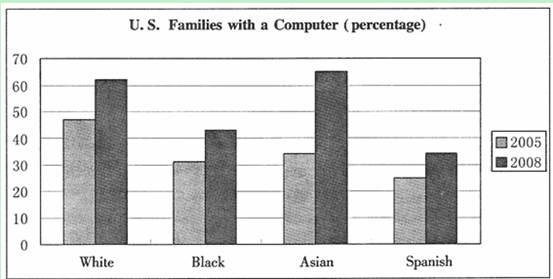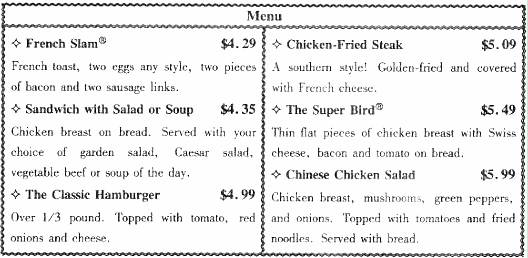题目内容
Many people wrongly believe that when people reach old age, their families place them in nursing homes.They are left in the 1 of strangers for the rest of their lives.Their 2 children visit them only occasionally, but more often, they do not have any 3 visitors.The truth is that this idea is an unfortunate myth-an 4 story.In fact, family members provide over 80 percent of the care 5 elderly people need.Samuel Prestoon, a sociologist, studied 6 the American family is changing.He reported that by the time the 7 American couple reaches 40 years of age, they have more parents than children. 8 , because people today live longer after an illness than people did years 9 , family members must provide long term care.More psychologists have found that all caregivers 10 a common characteristic: All caregivers believe that they are the best 11 for the job.In other words, they all felt that they 12 do the job better than anyone else.Social workers 13 caregivers to find out why they took 14 the responsibility of caring for an elderly relative.Many caregivers believed they had 15 to help their relative.Some stated that helping others 16 them feel more useful.Others hoped that by helping 17 now, they would deserve care when they became old and 18 .Caring for the elderlyand being taken care of can be a 19 satisfying experience for everyone who might be 20 .
1.A.hands B.arms C.bodies D.homes
2.A.growing B.grown C.being grown D.having grown
3.A.constant B.lasting C.regular D.normal
4.A.imaginary B.imaginable C.imaginative D.imagery
5.A.that B.this C.those D.these
6.A.when B.how C.what D.where
7.A.common B.ordinary C.standard D.average
8.A.Further B.However C.Moreover D.Whereas
9.A.before B.ago C.later D.lately
10.A.share B.enjoy C.divide D.consent
11.A.person B.people C.character D.man
12.A.would B.will C.could D.can
13.A.questioned B.interviewed C.inquired D.interrogate
14.A.in B.up C.on D.off
15.A.admiration B.initiative C.necessity D.obligation
16.A.cause B.enable C.make D.get
17.A.someone B.anyone C.everyone D.anybody
18.A.elderly B.dependent C.dependable D.independent
19.A.similarly B.differently C.mutually D.certainly
20.A.involved B.excluded C.included D.considered
1.A.hands B.arms C.bodies D.homes
2.A.growing B.grown C.being grown D.having grown
3.A.constant B.lasting C.regular D.normal
4.A.imaginary B.imaginable C.imaginative D.imagery
5.A.that B.this C.those D.these
6.A.when B.how C.what D.where
7.A.common B.ordinary C.standard D.average
8.A.Further B.However C.Moreover D.Whereas
9.A.before B.ago C.later D.lately
10.A.share B.enjoy C.divide D.consent
11.A.person B.people C.character D.man
12.A.would B.will C.could D.can
13.A.questioned B.interviewed C.inquired D.interrogate
14.A.in B.up C.on D.off
15.A.admiration B.initiative C.necessity D.obligation
16.A.cause B.enable C.make D.get
17.A.someone B.anyone C.everyone D.anybody
18.A.elderly B.dependent C.dependable D.independent
19.A.similarly B.differently C.mutually D.certainly
20.A.involved B.excluded C.included D.considered
1. A
2. B
3. C
4. A
5.A
6.B
7.D
8. C
9. B
10. A
11. B
12. C
13. B
14. C
15. D
16. C
17. A
18. B
19. C
20. A
1.本句意为他们的业余生活要由陌生人来照料。in the hands of“由……控制或照料”,固定搭配。
2.grown children过去分词作定语,意为长大的孩子。
3.regular“定期的、有规律的”;normal“正常的”;constant“经常的”;lasting“持续的”,这里指定期来看望的人。
4.imaginary“不真实的、虚构的”;imaginable“可想象的”;imaginative“富于想象力的”;imagery意为肖像。
5.that引导定语从句。
6.根据上下文,how引导宾语从句,表示“如何、怎么样”。
7.average指一般、通常的情况;common表示“普通的”,强调大部分;ordinary与special相对立,强调普遍性;standard“标准的”。
8.用moreover“而且”,表示两句间递进的关系。如果further加上more,也表示递进关系。
9.ago“以前”,指从现在算起;before是从过去某个时刻算起。
10.share,共享的,常与common搭配。consent同意。
11.这里要用复数,故选people。
12.would表示一种意愿,can表示能力。主句是过去时,故选could。
13.questioned和inquired表示“询问、疑问”;interrogate“审问”。故interviewed“面试、访问”符合句意。
14.take on“承担”;take in“欺骗、收容”;take up“从事”;take off“脱下”、“起飞”。take on符合句意,承担照顾年老亲戚的责任。
15.obligation“责任、义务”;admiration“羡慕”;initiative“首创的,开始的”;necessity“必要性”。本句与上句意思相近,故选obligation。
16.make sb do sth.表示“使某人……”,符合句意。
17.someone在这里泛指某个人。Anyone、anybody指任何人,everyone指每个人。
18.dependent“依靠别人的”;dependable“可靠的”;independent“独立的”。
19.mutually“共同地”;similarly“同样地、相似的”;differently“不同地”;certainly“当然地”。只有共同地符合句意。
20.involved“涉及、牵涉到”;included“包含”;excluded“排除在外、不包括”;considered“考虑到”。本句意为可能涉及到的每一个人。
2.grown children过去分词作定语,意为长大的孩子。
3.regular“定期的、有规律的”;normal“正常的”;constant“经常的”;lasting“持续的”,这里指定期来看望的人。
4.imaginary“不真实的、虚构的”;imaginable“可想象的”;imaginative“富于想象力的”;imagery意为肖像。
5.that引导定语从句。
6.根据上下文,how引导宾语从句,表示“如何、怎么样”。
7.average指一般、通常的情况;common表示“普通的”,强调大部分;ordinary与special相对立,强调普遍性;standard“标准的”。
8.用moreover“而且”,表示两句间递进的关系。如果further加上more,也表示递进关系。
9.ago“以前”,指从现在算起;before是从过去某个时刻算起。
10.share,共享的,常与common搭配。consent同意。
11.这里要用复数,故选people。
12.would表示一种意愿,can表示能力。主句是过去时,故选could。
13.questioned和inquired表示“询问、疑问”;interrogate“审问”。故interviewed“面试、访问”符合句意。
14.take on“承担”;take in“欺骗、收容”;take up“从事”;take off“脱下”、“起飞”。take on符合句意,承担照顾年老亲戚的责任。
15.obligation“责任、义务”;admiration“羡慕”;initiative“首创的,开始的”;necessity“必要性”。本句与上句意思相近,故选obligation。
16.make sb do sth.表示“使某人……”,符合句意。
17.someone在这里泛指某个人。Anyone、anybody指任何人,everyone指每个人。
18.dependent“依靠别人的”;dependable“可靠的”;independent“独立的”。
19.mutually“共同地”;similarly“同样地、相似的”;differently“不同地”;certainly“当然地”。只有共同地符合句意。
20.involved“涉及、牵涉到”;included“包含”;excluded“排除在外、不包括”;considered“考虑到”。本句意为可能涉及到的每一个人。

练习册系列答案
 新课标阶梯阅读训练系列答案
新课标阶梯阅读训练系列答案 口算心算速算应用题系列答案
口算心算速算应用题系列答案
相关题目


